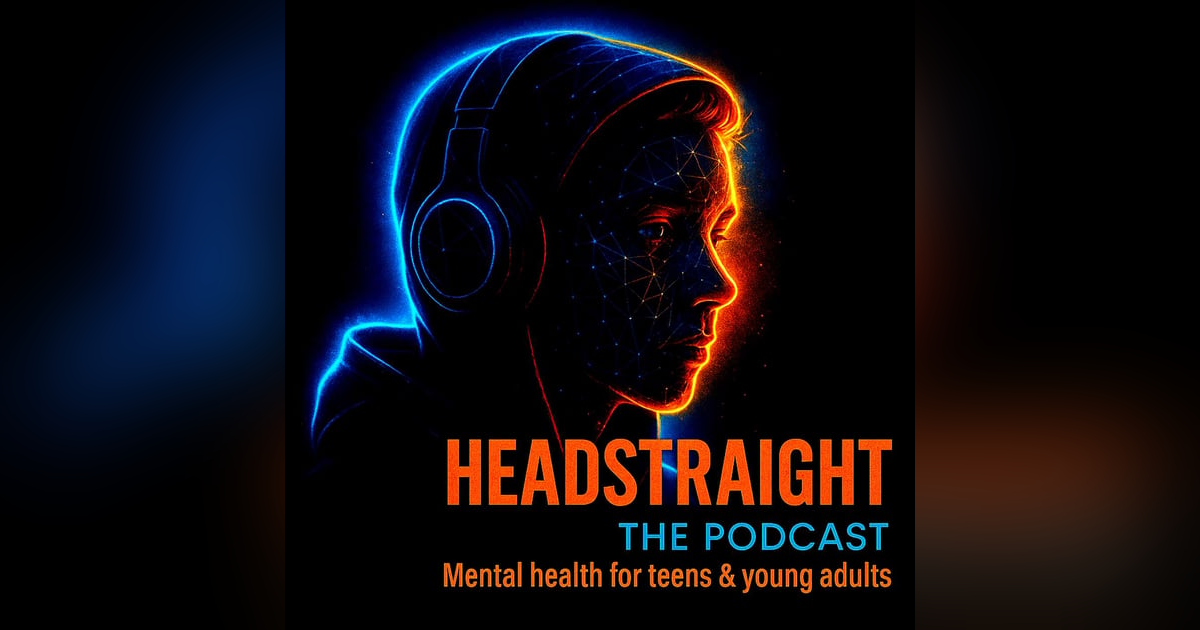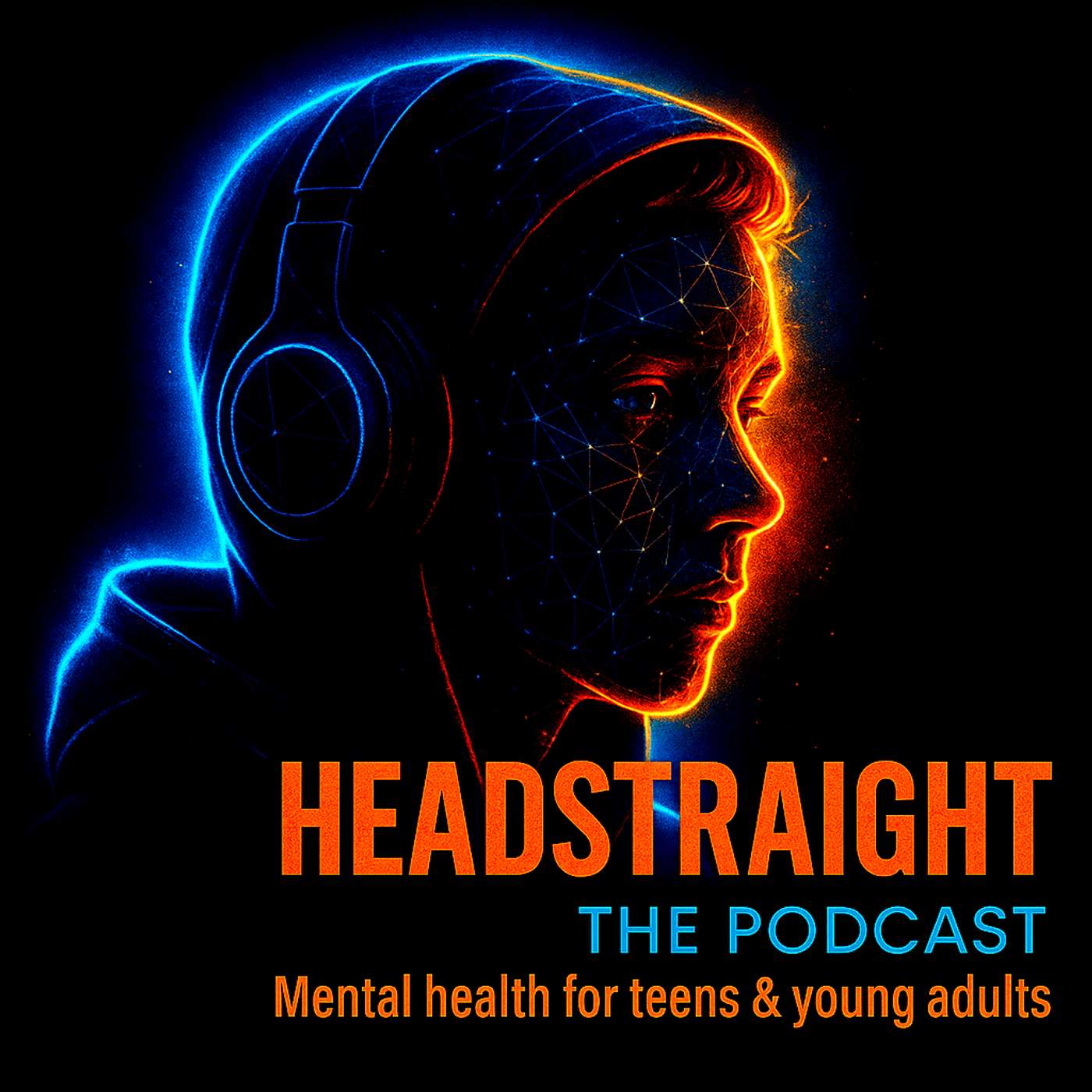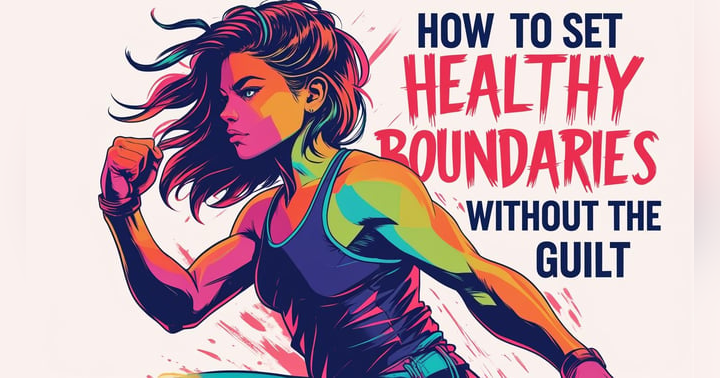The Truth About Setting Boundaries — And Why You Need To


Everyone says, “Set boundaries,” but no one explains how. And when you do try? Cue the guilt trips, the people pleasing instincts, and the fear that you’ll lose someone if you put your needs first. For many young adults and teens, this struggle wrecks emotional well-being, chips away at self esteem, and keeps you locked in self-sabotage and shame.
In this episode of Headstraight, we get real about boundaries. You’ll hear straight talk on why they feel impossible, how old conditioning tells you that saying no is selfish, and why guilt shows up even when you’re making better choices. We’ll talk about spotting the red flags—those moments when you feel drained, resentful, or invisible—and why they’re signs you need to act.
Then, we’ll get practical. You’ll learn how to actually word your boundaries, how to protect your teen mental health without blowing up your relationships, and how to stick with them when guilt kicks in. Along the way, you’ll see why setting boundaries is one of the strongest ways to silence self doubt and build lasting self reliance.
This is real talk mental health—clear, honest, and actionable. Boundaries aren’t about being mean. They’re about creating safety, protecting your energy, and reminding yourself that your needs matter.
Got something to say? - come send me a message at www.headstraight.co.uk/contact/
or send me a voice note at www.headstraight.co.uk/voicemail/
Click here if you want more info about the host
If you need more information about helplines, services or what do to if you're in a crisis, take a look at our resource page: https://www.headstraight.co.uk/resources
Mark:
My name's Mark and you're listening to Head Straight. Hello, and welcome back. Alright. Let's talk boundaries. The things everyone says that you need, but no one really explains how to do it properly.
Mark:
Now you've probably heard phrases like protect your peace or set boundaries, but what does it actually mean in real life? Now maybe you've tried this before, but then you've had someone guilt trip you or act like you're out of line. Well, maybe the whole idea of setting boundaries feels awkward or impossible because you hate conflict or worry that you'll lose people. Now here's the truth. Boundaries aren't about being mean or selfish.
Mark:
They're about being clear. They're how you protect your time, energy, and your mental health. Boundaries tell people this is what I need to feel okay, and in doing so they teach others how to treat you. Now if you're tired of feeling overextended, frustrated or like you're constantly giving more than you're getting, then this episode's for you. We're gonna break down why boundaries matter, why they're so hard to set, and how to start creating ones that stick.
Mark:
We're also gonna take a look at some scenarios, deal with emotional fallout, and even touch on how to set boundaries with yourself. So let's get into it. Now here's the thing. Boundaries sound simple in theory, but in practice they can feel like you're climbing a mountain. A lot of that comes down to emotions.
Mark:
Fear of upsetting someone, guilt about saying no, or worry that you'll ruin the relationship. Those feelings show up before you've even tried to set the boundary making it easier to avoid the conversation altogether. Now remember back to episode two? Why can't I control my feelings? We talked about how your emotional brain just stamps on the gas fear, guilt, and worry, whilst your logical brain struggles to hit the brakes.
Mark:
That's exactly what's happening here. But just like managing big emotions, setting boundaries gets easier with practice. The first few times do feel messy, awkward and terrifying, but every time you do it you're teaching your brain that it's okay to stand up for yourself. The other reason boundaries feel hard is guilt. Somewhere along the way you've learned that saying no makes you selfish.
Mark:
So instead of risking a fight or letting someone down, you keep quiet even when it leaves you drained. But the truth is setting boundaries might feel uncomfortable in the moment, but it saves you from the bigger problems later. So I want you to start paying attention to the parts of your life that feel heavy. Where are you feeling frustrated, overextended, or resentful? Ful?
Mark:
Those feelings are usually red flags telling you that a boundary is missing. Maybe you've got a friend who expects you to drop everything for them but never shows up when you need help, or a family member who keeps making comments about your life choices that makes you small. Or maybe it's your own habits, like constantly saying yes to new commitments even when you're already stretched really thin. So think about one relationship or situation where you felt frustrated recently. Is it because you've been saying yes when you actually wanted to say no?
Mark:
Or because someone keeps crossing a line you haven't communicated yet? Take a moment to notice when those feelings show up. They're your clues as to where the boundary might be. If this sounds familiar, I want you to think back to episode one, why do I feel like I'm not good enough? That voice in your head that says other people's needs are more important than mine, loves it when you ignore your boundaries.
Mark:
But here's the thing. Setting boundaries is one of the strongest ways to shut that voice up. It's how you remind yourself that your needs matter too. Now boundaries aren't about controlling others. They're about protecting yourself.
Mark:
Instead of saying you can't do this, boundaries say here's what I need and here's what happen if that doesn't work. It's less about changing other people and more about showing them what's okay for you. Now think about one situation where you've letting something slide. It could be a friend leaning too hard on you, a family member making comments or even your own habit of over committing. What's one small boundary that you could set to make that situation feel more manageable?
Mark:
Here's an example. Let's say you've got a friend who keeps unloading all of their problems on you. Instead of blowing up or ghost ing them, you could say, do you know what? I care about you, but I don't have the emotional bandwidth for this right now. Maybe we can find someone else that you can talk to.
Mark:
Now this ties back to episode three. How do I build a better support network? A good network isn't just about finding the right people. It's about teaching them how to respect you. True friends will adapt to your boundaries because they value you, and if they don't, well, that's a sign that they might not be the supportive people you thought they were.
Mark:
Now let's talk about what setting boundaries actually looks like. It's easy to imagine boundaries these dramatic confrontations where you're laying down the law, but most of the time they're way more low key. They're about simple clear communication. For example, let's say you have a friend who's been leaning on you a little too heavily. You care about them, but every conversation seems to revolve around their problems leaving you drained.
Mark:
Now you don't have to cut them off completely. Instead, you might say something like, look. I really care about you, but I've been feeling overwhelmed lately. I don't think I can be the best person to talk about this right now. Maybe we can figure out another way to get you the support that you need.
Mark:
Or maybe it's a member who keeps pushing your buttons and giving you advice that you didn't ask for. It doesn't have to turn into an argument. You could calmly say I know you're trying to help, but those comments make me feel judged. I'd really appreciate it if we could focus on something else when we talk. And what about school?
Mark:
Let's say a group project isn't feeling very group like because you're doing all the work while everyone else slacks off. Instead of letting it slide and feeling resentful, you could say, do you know what? I've been doing a lot of this work on my own and it's getting overwhelming. Can we try and figure out a way to split the work better so that it's fair for everyone? Take a moment to think about how you'd say this in your own words.
Mark:
If you had to set a boundary with a friend, family member, or a classmate today, what would it sound like? Practicing it in your head can make it easier when the time comes to say it out loud. Now you're gonna feel it. Guilt is almost guaranteed when you start setting boundaries, but it doesn't mean that you've done something wrong. So when was the last time that you felt guilty for saying no or putting yourself first?
Mark:
What happened? Now ask yourself, was the guilt trying to protect an old habit, or was it actually a sign that you were doing something important for yourself? Now think back to the episode, I feel guilty for asking for attention. We talked about how guilt is often a sign that you're breaking old patterns, not hurting anyone. It's the same with boundaries.
Mark:
Every time you feel that pang of guilt, remind yourself that protecting your peace isn't selfish. It's necessary. So before we wrap up, what's one boundary that you could set today? Think about something small but meaning meaningful. Maybe it's saying no to one thing that you don't want to do or having an honest conversation with someone who's been crossing a line.
Mark:
Start there. And that's it. Not just for this episode, but for the first season. Now if you've made it this far, take a second to really clock that. You spent a whole season being honest with yourself about your emotions, your choices, your relationships, and how you show up in the world.
Mark:
Now that's not easy work. Most people avoid it, but you didn't. This episode on boundaries wraps up everything that we've been building towards. Knowing yourself, owning your impact, protecting your peace, and figuring out how to do life in a way that actually works for you, not just for everyone else. So here's your challenge.
Mark:
Don't let this be where it ends. Pick one thing from this season, just one, and apply it. Whether it's learning to pause before reacting, being honest about what you need, or saying no without guilt. That's where change starts. So thanks for walking this path with me through season one, and head straight will be back.
Mark:
But until then, showing up for yourself one decision at a time. You've already started the work, so keep going.













